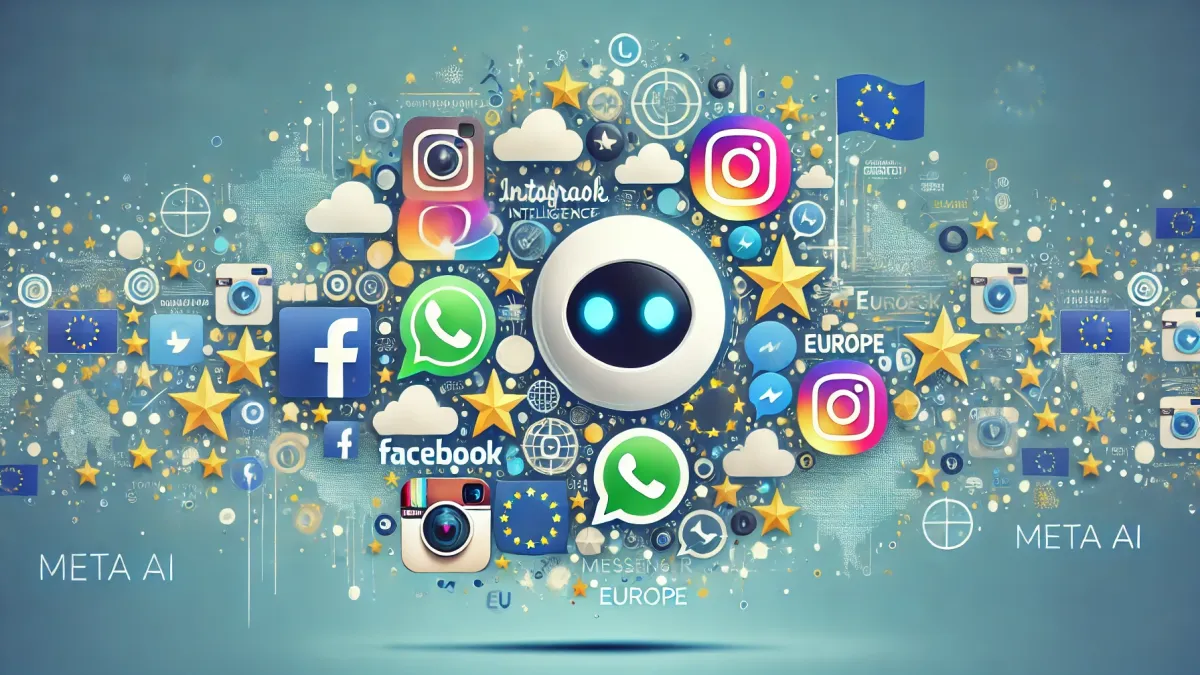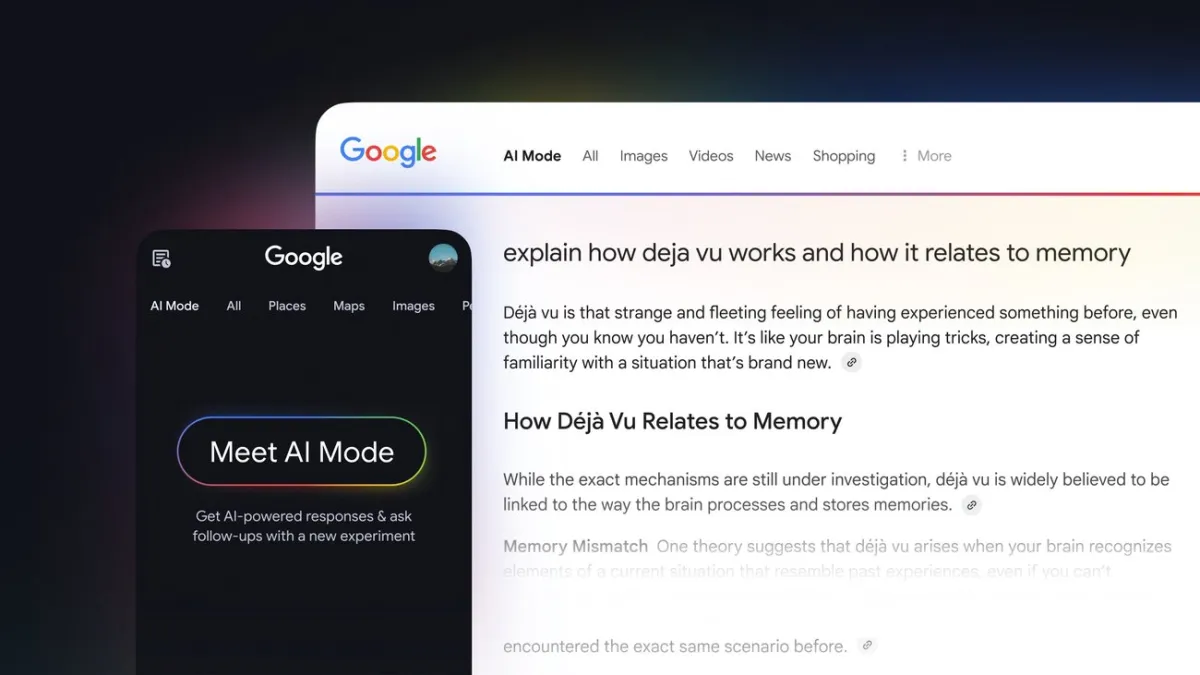
Meta AI launches in Europe: What does this mean for users and marketing?
Meta has begun rolling out its AI-powered assistant Meta AI in Europe after months of delays due to regulatory hurdles. In the coming weeks, users in 41 European countries (including all EU countries) and 21 overseas territories will have access to Meta AI. At launch, the AI will be available in six languages (English, French, Italian, Spanish, Portuguese, and German). This rollout is Meta AI's largest expansion to date and is no coincidence: more than 700 million people worldwide use the assistant monthly. For Europe, the question now arises of how Meta AI will impact user experience and marketing activities—from organic posts to paid ads. At the same time, it is important to highlight how strict data protection laws like the GDPR have shaped and could continue to shape the introduction of these AI features.
New AI Assistant in Facebook, Instagram, WhatsApp & Co.
Meta AI integrates seamlessly into the familiar apps of the Meta universe. The assistant is offered for free through messenger services and social networks that many Europeans already use daily—specifically Facebook, Instagram, WhatsApp, and Messenger. A blue circular icon marks the entry point; a tap is all it takes to activate Meta AI and explore its potential. Users can ask questions, search for information, or seek help with everyday problems in a direct chat with the AI. Meta AI provides answers from the web, allowing users to stay within the app and still receive comprehensive information. Additionally, the assistant is connected with the content of the users' own network: it can display relevant posts, photos, or reels from friends and subscribed pages that match the searched topic. For example, by entering "Show me content about Vancouver Island," Meta AI presents relevant posts from the user's own feed—without having to navigate through different tabs.
A special highlight is the use of Meta AI in group chats. From now on, the assistant can be consulted in WhatsApp groups (integration into Facebook Messenger and Instagram Direct will follow soon). By entering @MetaAI followed by a question or request, the whole group can benefit from its knowledge. Whether planning a trip with friends, looking for recipe ideas for joint cooking, or discussing a disputed factual topic—Meta AI is "on-call" to provide information, resolve disputes, or simply entertain.
Organic Content and Interactions: How AI Changes User Experience
The introduction of Meta AI is likely to have noticeable effects on the organic use of Facebook, Instagram & Co. On one hand, AI facilitates access to curated content from the user's own network. Users can now find posts matching their current interests more quickly, rather than relying solely on the randomness of the news feed algorithm. If, for example, someone is looking for travel reports about Canada or product recommendations for e-bikes, they can inform the AI, which suggests relevant posts from friends or pages. For content creators, this means a new opportunity: Good, topic-relevant content could become more visible in the future when Meta AI highlights it in suitable user inquiries.
While Meta AI in the EU version can currently (still) not generate images or creatively distort selfies—functions already available in the US—this only slightly reduces the added value for organic content. The focus is on text-based assistance: quick answers, helpful tips, and finding suitable posts. Prospectively, Meta has announced plans to catch up gradually and expand its offerings in Europe to reach "parity with the US."
Impact on Advertising and Marketing Strategies
Meta AI also brings changes to paid media and digital marketing on Meta platforms—albeit indirectly and in the long term. Currently, the assistant primarily functions as a user feature; there are no ads within the AI responses for now, and Meta AI itself is (still) not an advertising channel. Nevertheless, looking at the potential effects and opportunities is worthwhile:
- New Touchpoints: As users get used to asking for recommendations via AI, this could influence the customer journey. Brand content could be discovered more through AI recommendations rather than traditional search or newsfeed ads.
- Efficiency in Ad Creation: Generative AI simplifies creative work. Once these functions are released EU-wide, marketing teams can act much more agilely.
- Transparency as a Mandate: Meta plans to clearly label AI-generated content in the future to ensure trust and meet regulatory requirements.
Regulatory Framework: AI Between Data Protection and Innovation
The fact that Meta AI is only now appearing in Europe is largely due to the EU's strict data protection regulation. The Irish data protection authority had blocked the initial launch of AI because the planned use of European user data for AI training was not sufficiently secured. Meta responded and now offers a version of Meta AI that has explicitly been trained without the use of EU user data. These compromises illustrate that innovation must always occur in the context of data protection laws.
Conclusion: Balance Between Opportunities and Requirements
The introduction of Meta AI in Europe opens up numerous new possibilities for users and marketing experts. At the same time, it shows that technical innovations can only be successful if they comply with the rules of data protection and transparency. Companies that achieve this balance can benefit from the advantages of AI while also ensuring user trust. Meta AI is likely to quickly become an integral part of digital communication—provided the regulatory requirements are consistently met.


